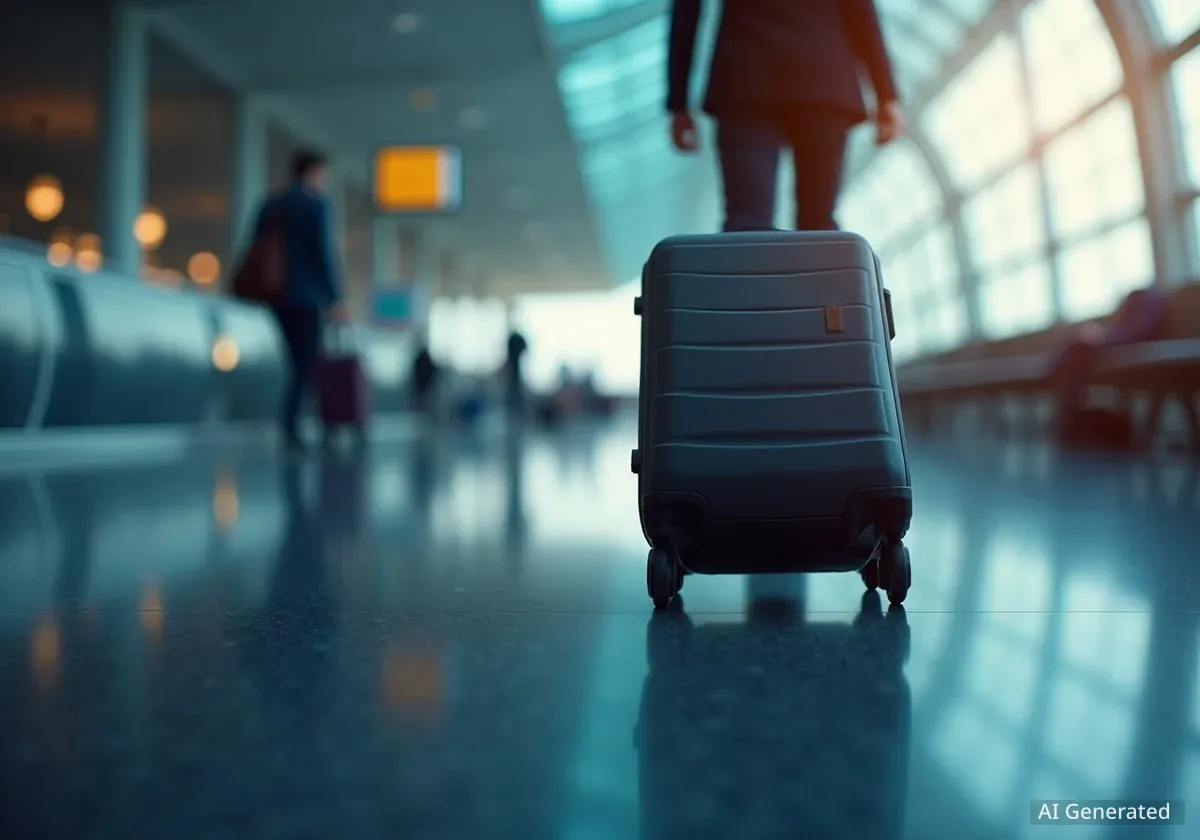A recent travel incident highlights the complexities and frustrations passengers face when airline rebookings lead to denied boarding. A passenger flying from Stockholm to Cleveland was left stranded in Toronto after one airline rebooked a flight and another denied boarding, citing an invalid ticket.
Key Takeaways
- Passenger denied boarding on Air Canada flight despite valid rebooking itinerary.
- Lufthansa, the rebooking carrier, initially refused to cover expenses.
- The incident stemmed from a 'code-share' confusion between Lufthansa and Air Canada.
- EU Regulation 261/2004 and the Montreal Convention outline airline responsibilities.
- Escalation to the U.S. Department of Transportation led to a full refund.
International Travel Disruption
The journey began in Stockholm, with a final destination of Cleveland. The passenger, Bonnie Thiel, and her husband were traveling when their initial flight with Lufthansa experienced a delay. Lufthansa rebooked their connecting flights, which included a segment from Toronto to Cleveland operated by Air Canada.
Upon arriving in Toronto, a critical issue arose. Air Canada denied boarding to Ms. Thiel, claiming her ticket was invalid, even though she possessed a boarding pass and a rebooking itinerary. Her husband's boarding passes, however, were deemed valid, creating a baffling situation for the couple.
Fact Check
EU Regulation 261/2004 mandates that airlines must reroute passengers and cover necessary expenses if their initial flight, originating in the EU, is delayed and causes onward travel disruption.
Caught Between Carriers
Ms. Thiel attempted to resolve the issue with Lufthansa, the carrier responsible for the rebooking, but received no assistance. Faced with no other option, she had to pay $178 for a hotel room in Toronto. The couple flew home the following day, but the financial burden and inconvenience remained unresolved by either airline.
This situation exemplifies a common issue in air travel: code-share confusion. When multiple airlines operate segments of a single itinerary, determining responsibility for disruptions can become a bureaucratic challenge. Each airline often points to the other, leaving the passenger in a difficult position.
"Both airlines’ ‘not our problem’ responses are unacceptable," said a consumer advocate familiar with the case. "Airlines have clear obligations to passengers, especially when rebooking or ticketing errors occur."
Understanding Passenger Rights
Several international regulations protect air travelers. Since the initial delayed flight departed from Stockholm, a European Union city, EU Regulation 261/2004 applies. This regulation states that Lufthansa had a duty to reroute Ms. Thiel and cover necessary expenses resulting from its delay. Issuing a faulty boarding pass and stranding a passenger directly violates this obligation.
Legal Frameworks
The Montreal Convention also plays a role. It requires airlines to honor valid tickets and boarding passes. If there was a ticketing error, Air Canada should have worked with Lufthansa to resolve it immediately, rather than denying boarding.
The dispute highlighted the challenge of determining which carrier was ultimately responsible. Lufthansa argued that Air Canada, as the operating carrier for the Toronto-Cleveland leg, should take responsibility. Air Canada, conversely, contended that Lufthansa was at fault due to its initial flight delay from Frankfurt to Toronto, which necessitated the rebooking.
Steps for Stranded Passengers
When facing a similar situation, passengers have several avenues to pursue. The initial step is to apply pressure to the airline directly at the airport. Booking a hotel independently should be a last resort, as airlines often try to avoid reimbursing these costs if not pre-approved or arranged by them.
Keeping detailed records is crucial. This includes boarding passes, rebooking itineraries, receipts for expenses, and any communication with airline staff. These documents provide strong evidence when escalating a complaint.
Did You Know?
Sending a polite, brief email to an airline executive can sometimes yield faster results than standard customer service channels. Many consumer advocacy websites list these executive contacts.
Another important step is to appeal to regulatory bodies. In the United States, the U.S. Department of Transportation (DOT) regulates airlines. Filing a complaint with the DOT can compel airlines to address unresolved issues.
Resolution Through Advocacy
In Ms. Thiel's case, after exhausting direct appeals to both airlines, she filed a complaint with the U.S. Department of Transportation. This action proved effective. Following the DOT complaint, Lufthansa provided a full refund for her $178 hotel bill.
This outcome underscores the importance of understanding passenger rights and utilizing available channels for recourse. While complex airline partnerships can create confusion, regulatory oversight provides a mechanism for passengers to seek fair treatment and compensation when airlines fail to meet their obligations.
- Always keep all travel documents.
- Document every interaction with airline staff.
- Understand your rights under applicable international regulations.
- Consider escalating complaints to relevant government agencies.
The incident serves as a reminder for travelers to be prepared for potential disruptions, especially on multi-leg international journeys involving different carriers. Knowing your rights and the proper steps to take can significantly impact the resolution of such stressful situations.





